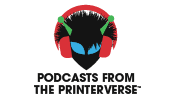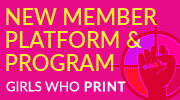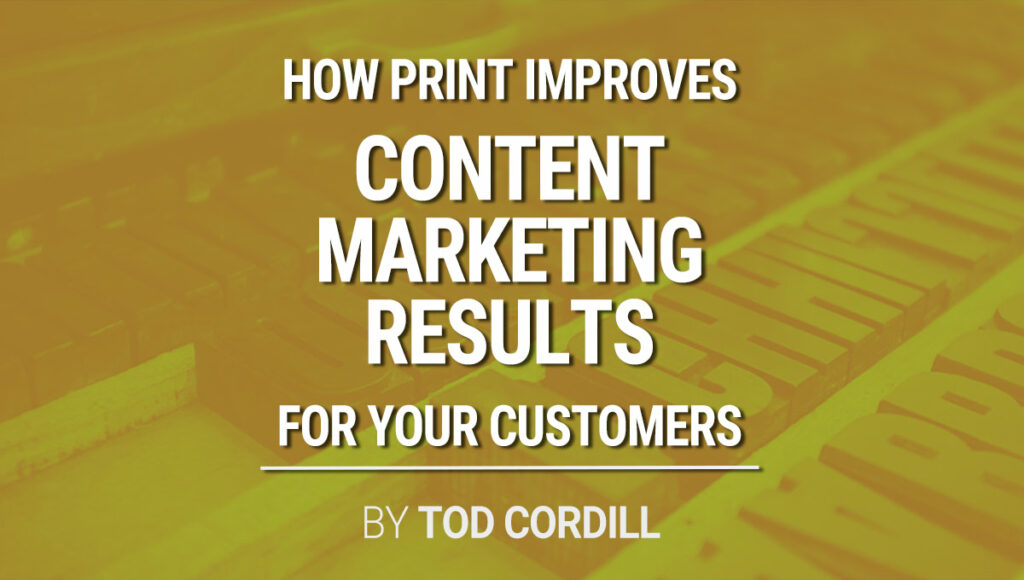
Content marketing started as an industry buzz word that has continued to gain popularity over the last decade. While it is usually associated with digital marketing, it is commonly accepted that John Deere’s print magazine The Furrow, in 1895. (No, that’s not a typo. Content marketing has been around for at least 125 years now.) The Furrow, sent to customers at no charge, provided useful information that allowed farmers to be more successful.
Interest in content marketing has consistently increased over the last decade.
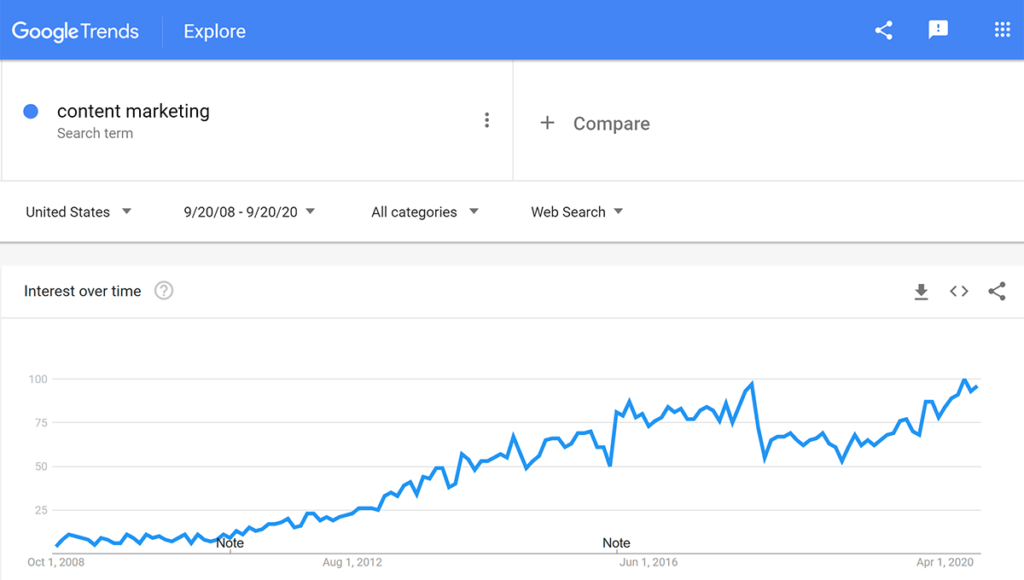
Source: Google Trends
Content marketing, as defined by the Content Marketing Institute, who is commonly credited with the rise of Content Marketing, is:
“Content marketing is a strategic marketing approach focused on creating and distributing valuable, relevant, and consistent content to attract and retain a clearly-defined audience — and, ultimately, to drive profitable customer action.” – Content Marketing Institute
Content and the Customer Journey
Content is created in many different formats and delivered in many different ways. The following are defined for every piece of content created:
- Who the content is for
- What format the content is created in
- Where in the customer journey the content is used
- How the content is delivered
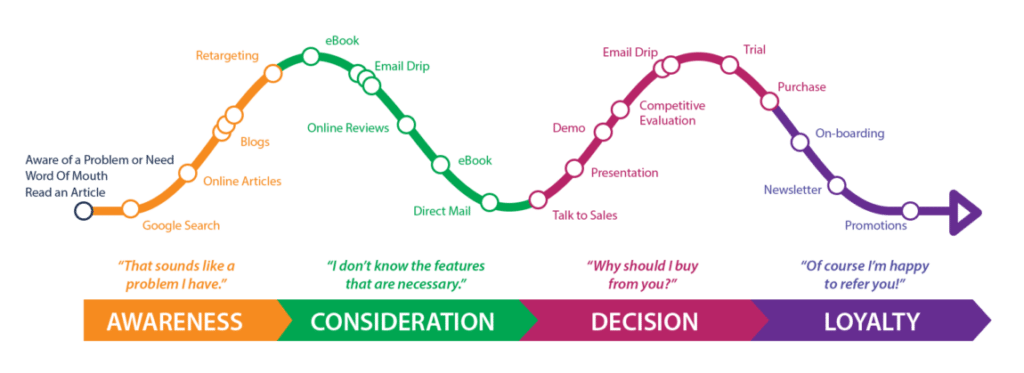
You can read more about the customer journey in Are You Selling Print Like It’s 1989?
Content and Digital Marketing
Unlike the print magazine The Farrow, content today is typically delivered digitally and includes sales or marketing emails, website, and specific landing pages, blog posts, videos, and PDF eBooks.
Content is also commonly repurposed. Content created as a blog post is made into a video. A series of blog posts might be combined into an eBook. Repurposing content is an important concept to consider for print companies.
Relying on digital delivery has made content marketing an effective strategy. But the noise and overflowing inboxes provided by digital marketing are easily tuned out by prospects and customers.
Print Enriched Content Marketing
Print overcomes digital channel noise. As discussed in 4 Email Marketing Problems Direct Mail Solves for Reaching Customers, direct mail can solve many email marketing problems. But it solves more than email marketing ineffectiveness.
Content created for digital channels can be repurposed into print content.
Turn eBooks into booklets that can be delivered using USPS direct mail, or in easily noticed and almost always opened FedEx express delivery envelopes. Once we’re on the other side of COVID, booklets can be distributed at trade shows and conferences, or as a sales visit leave-behind.
Digital ad and landing page content can be summarized on a postcard that drives prospects to the landing page.
An infographic can turn into a printed poster that is folded and mailed to a prospect, or rolled and inserted into a mailing tube for extra attention.
Print and the Customer Journey
Print, and especially print delivered by direct mail or shipped in small packages, can enhance the customer journey in ways digital channels can’t.
Targeted direct mail prospect lists can be purchased to increase company awareness to new target audiences.
Digital marketing channels can identify specific needs prospects have. Sending printed case studies instead of emailing a link to a PDF puts your message into the hands of your future customer, helping drive consideration for your offerings.
Help drive the buying decision, increase close rates, and shorten sales cycles with a detailed eBook describing how your solution can be easily implemented and quickly solve problems.
Content marketing has come full cycle. From its early beginnings as a print magazine to a plethora of digital channels, savvy marketers are learning that it once again has its place in the modern marketing stack. Printing companies have a unique opportunity to use print to show, not just tell, marketers how to leverage print to enhance their content marketing strategy.



